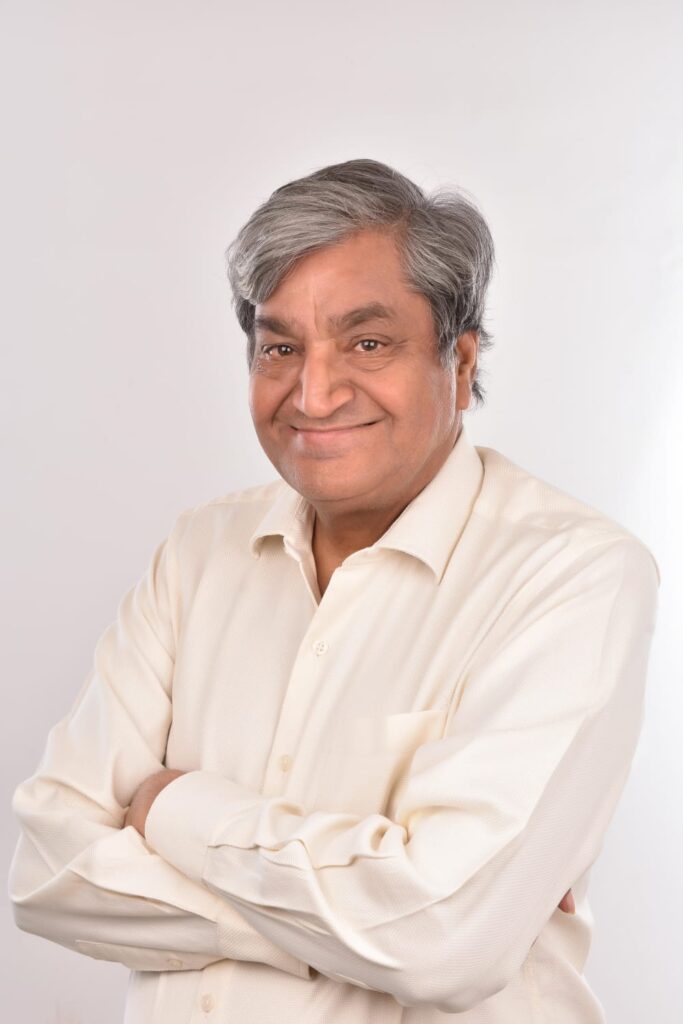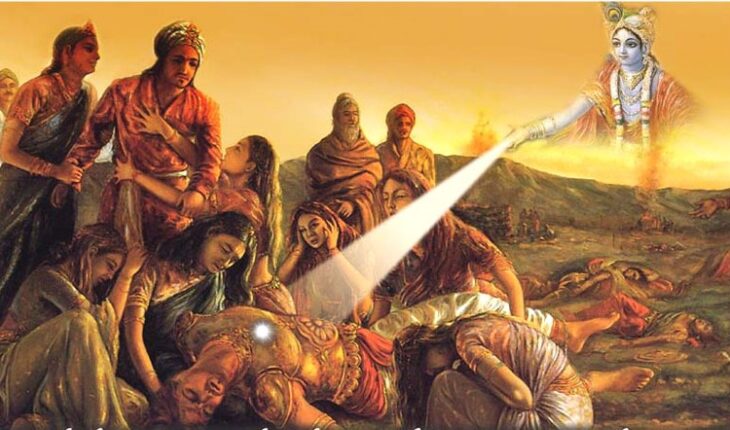
The embodied soul (jeevatma – the self) is on a continued journey towards perfection. Sri Krishna has described, in the very beginning of his dialogue with Arjuna (Chapter 2 of the Bhagavad Gita) the characteristics and movements of the jeevatma. It has been stated that jeevatma dwells in the body of everyone. Though the physical bodies in which the jeevatma resides are perishable, but the jeevatma himself is imperishable. He is immeasurable and immutable. The jeevatma is never born nor he ever dies. He does not come into being at any particular time nor he ever ceases to be ; because he is eternal, unborn, ever-existing and primeval. He is not destroyed when the body is destroyed. He rather moves to another body. Sri Krishna has also described the manner of the journey of the jeevatma. It has been stated that just as an embodied soul passes through childhood, youth and old-age ; in the same manner, he obtains another body after death. And just as a person discards old garments and puts on fresh ones ; similarly the embodied soul gives up worn-out body and passes into new one.
The journey of the embodied soul has further been explained in shlokas from 15.7 to 15.11. In these shlokas Sri Krishna has elaborated upon the genesis, attributes and transformations of the embodied soul. It has been stated that an eternal fragment of the Supreme Lord (Ishvara) having become an individual soul in the world of beings, attracts towards himself, from the material nature, five senses and also the mind. The expression ‘an eternal fragment of the Supreme Lord’ does not imply that Ishvara is capable of being partitioned into fragments. The individual self is an integral and inseparable part of the Supreme Self ( the consciousness nature of Ishvara). Though inseparable part of the whole, the jeevatma becomes jeev (a living being) after he acquires the senses and the mind i. e. he enters into a mind-body complex. In other words, instead of being a mind-body complex having a soul, the jeev is a soul having a mind-body complex. This soul keeps on moving from one body to another. The relationship of jeevatma , jeev and Parmatma has often been explained through the analogy of the space within an earthen pot and the universal space outside.
The soul being of the consciousness nature cannot directly see, hear, touch, taste or smell. But when he resides in a particular body, he enjoys the objects of the senses and, thus, experiences the pleasures and pains of the body, through the mind and the senses.
These senses and the mind accompany the embodied soul in its perpetual voyage through the cosmic existence. Sri Krishna has stated that when the jeevatma leaves a body and enters a new one, he carries the mind and the senses with him, in the same manner as the air carries aromas from one place to another. The symbolism of the air carrying the fragrance (and not the flowers themselves) explains the process of the transmigration of the soul. Fragrance does not remain in the air for ever. Similarly, any set of the senses and the mind is not an ever-lasting associate of the embodied soul. When the jeevatma departs from one body (at the time of death), he discards the gross body and carries samskaras (the latent mental impressions generated through the varied experiences of the body) and enters the other body along with these samskaras. While the soul gets a new body in every birth, the mental impressions continue travelling with him from innumerable past lives.
Though pervading whole of the body and experiencing its pleasures and pains, jeevatma is not easy to be perceived. Not everyone can realise the presence of the indwelling divinity. That is why it has been stated in these shlokas that the ignorant cannot see the jeevatma while residing in the body, while experiencing the objects of the senses ; or while departing from the body. But those who possess the eye of wisdom, can see it all. In other words, the enlightened beings percieve the self at every stage.
It has further been declared that the yogis who strive with full faith and firm resolve see the soul existing in their own selves – in their own mind and in their own intelligence. They recognise the self as their own being. But those whose hearts are not pure, cannot see the indwelling soul, even if they try to see him.
To conclude, the pilgrimage of the embodied soul continues, till he reaches the goal of freedom from the cycle of birth, death and re-birth. Therefore, even while fulfilling his worldly duties in all possible ways, one must always remain aware that in essence he is an eternal fragment of the Supreme Lord. Right knowledge, sincere devotion and unattached action paves the way of unity of the individual self with the Supreme Self.






